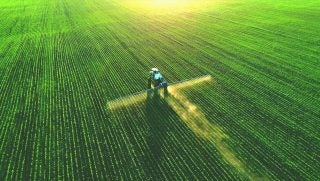Just like any competitive hobby or lifestyle, showing market livestock is filled with outside perspectives and opinions. Those who don’t understand our industry only see that young people are raising livestock projects from an early age, caring for them deeply, and then are forced to sell them and say goodbye. These same critics gawk at the fact that we try to justify the tears we shed after parting ways with our animals, arguing that the emotional weight of raising and selling livestock is particularly demanding and crippling for young people who have not yet internalized the use of livestock animals in our culture.
But as livestock enthusiasts, because we have all done it and experienced the emotion, we know that the tears we shed are not brought on just by sadness. Yes, we feel sad to part ways with our animals, but we also feel content with months of memories and lessons, proud of our contribution to the livestock industry, and most of all, we know that we have grown through the experience. And with that in mind, we don’t apologize for our display of these emotions, and here’s why:
We are allowed to be sad.
Months of building this relationship have ensued long before this day. We have spent early mornings, late nights and long days in the barn with our animals, providing the best possible care and treatment we can in preparation for show day. Just like a break-up, it is OK to feel some sadness when we are having to say goodbye to something we have built a personal relationship with.
Furthermore, shedding a tear does not mean that the emotional burden is too much to handle, it just represents a reflection and respect for our animals’ great life and the many memories we’ve shared together over the past several months. We have traveled many miles together, spent numerous hours in the barn listening to our favorite songs and walked through several show rings side by side, and that is something worth reflecting and being upset about saying goodbye to. But at the end of the day, as livestock raisers, we know that in every animal’s life there is a time to say goodbye, and stock show youth can be content knowing that in their lifetime, market animals have the highest quality of life we could possibly give them.
Being OK with what happens next, is OK.
Who’s to say our sadness and tears stem from being uneasy or not in support of our animals being used for food production? When young people invest in a market livestock project, they are investing in a larger part of production agriculture. They understand the undertaking and the commitment it takes to raise and care for a livestock project for an entire year. In addition, they understand the purpose of our livestock animals because it is a part of our agriculture culture and that is a culture built upon respect for the animal. As young agriculturalists, we know we expect great things from our animals and thus we make it our mission to never waiver in our level of dedication to that animal.
Those who do not come from an agricultural background may not understand this and claim that exposing young people to a “cruel reality” is wrong. However, whether you are in favor of it or not, raising livestock for food production is a part of our culture and economy and a way that we feed the world. Teaching our young people about this part of the industry at an early age is teaching them to hold animals in high regard and have a valued respect for what they provide to us. That is a important virtue when you think about sustainability of humane practices, and therefore, it is okay to be okay with saying goodbye to our animals.
This is a part of agriculture production we embrace.
We don’t apologize for using livestock to raise our kids to love and value the agriculture industry. Showing market livestock provides youth the opportunity to take responsibility for another life and learn about ethical practices that deliver the best care for our animals every day. There is no question that show livestock live a pristine life with a much higher level of care than most other production animals and that is because of our youth. They have a personal relationship and valued respect for their projects and thus strive to provide the best life possible. Years of providing that care to animals develops an attitude and habit of care. And as our young people progress in life, whether they choose a career in agriculture or not, they will carry that habit with them and will use it in tandem with their understanding of production livestock to fight to sustain safe and humane methods of raising livestock for production agriculture.
From our perspective, shedding a tear for your animal is a sign of respect for their life. If we didn’t devote our time, effort and resources to providing a great life for these animals, then there would be no need for emotional reaction. As our tears pour out, the care and time we poured into our livestock become more evident.
There is nothing wrong with being sad and crying over parting ways with your project, and it doesn’t mean the act of selling your animal is too much to bear. It means you devoted your time, care and love to that animal. It means you are grateful for your time with them and the memories you crafted with that animal. It means you have an understanding and respect for the greater purpose. It means that you care.
This article was contributed by Jessica Judge, marketing coordinator for BioZyme Inc.


